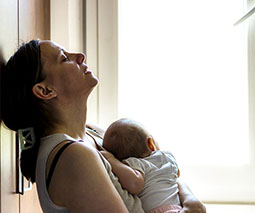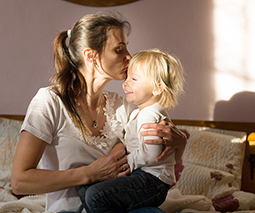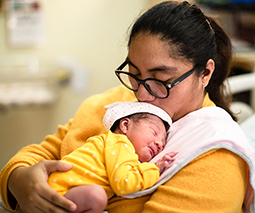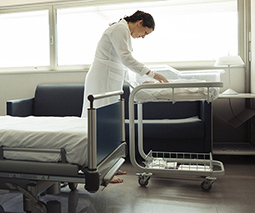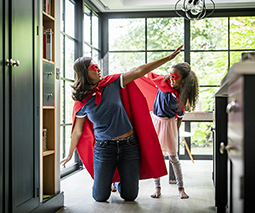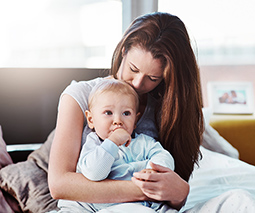7 women share their postnatal depression and anxiety stories

When we read or hear about postnatal depression, our minds often jump to visions of a suicidal mother lying in the foetal position on the floor with tears streaming down her face.
But there is so much more to PNDA than meets the eye, and multiple shades of grey between thinking you’re ‘fine’ and being suicidal. As we become aware of the ways postnatal depression and anxiety looks different for each mother or father who experiences it, we learn better how to identify it, treat it, and support others with it.
We asked seven women to share what it’s really like to have postnatal depression and anxiety, hoping their stories may help others who are in the same situation but feel unseen and unheard.
We see you. We hear you. We are standing with you.
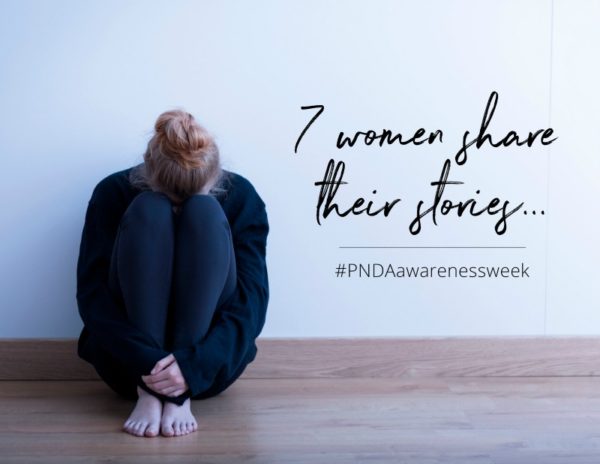
*Some names have been changed for privacy.
When did you find out you had postnatal anxiety or depression?
When my middle child was maybe 15 months old. In reality, I had it in the few days after his birth ’til he was about 2 and a half. So nearly 3 years.
– Rose*, 34 (mother to a 6, 4 and 4-month-old)
I still have PND. I was told by my OB, whom I had a wonderful relationship with on my 8-week check up.
– Kate, 32 (mother to an 18-month-old)
I just found out I have PNDA in February this year, three weeks after having my first child, a daughter. I’ve been living with it for 9 months now and there’s been some incredibly tough days, when it all seems too hard. Thankfully the good days outweigh the bad.
– Ashley, 24 (mother to a 10-month-old)
I knew for certain by the time my son was three months old.
– Kara*, 29 (mother to a 20-month-old)
I was officially diagnosed with depression when my last child was around four months, but I know I had it for a lot longer – I just didn’t want to admit it. Looking back, it really started with perinatal anxiety about three months into my last pregnancy.
– Lisa*, 30 (mother to a 6, 4 and 9-month-old)
My daughter was about 18 months when I realised something wasn’t right. I have been suffering from PNDA ever since. I’ve been seeing a counsellor for nearly a year to get it under control without medication, but it is always an option.
– Holly, 34 (mother to a 21-month-old)

How did you know you had PNDA and weren’t just ‘having a bad day’?
I had been a mother for five years already and knew what it felt like to be overwhelmed at times. This was different – it was all the time. I couldn’t cope with even the slightest thing going wrong. I started yelling at my husband, which I’d never done and I considered running away many times. I was diagnosed eventually when I couldn’t produce enough milk and couldn’t find any medical reason for it.
– Lisa
I’ve been through a lot of hard times in life and come out smiling – I knew I wasn’t right when I started to sit in my room every day and cry for hours on end and seriously consider how everyone around me (especially my son) would be better off if I wasn’t alive anymore. I was too ashamed to speak to a healthcare professional about it. I felt embarrassed and felt like a failure as a mother.
– Kara
When I just couldn’t do it anymore. I had had enough. All the balls that I had up in the air just came down one by one. My husband was the first to notice something wasn’t right. Then I was diagnosed by my doctor.
– Rose
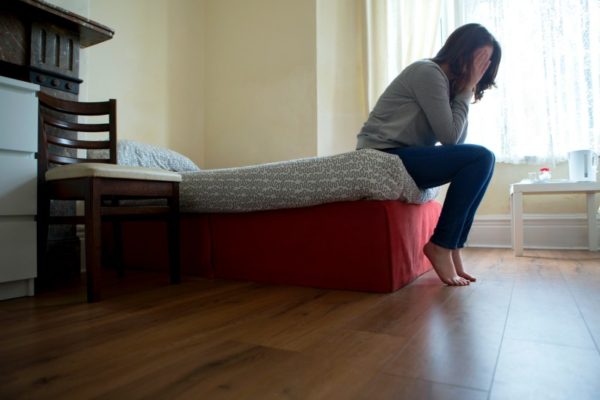
What does having PNDA feel like?
I couldn’t get out of bed. I didn’t know who I was. I hated the baby. I regretted every life decision I had made. I stopped talking to everyone. I slept hours and hours. Didn’t brush my hair, shower, or anything. I couldn’t make decisions – even simple ones, like having black tea or tea with milk.
– Kate
It felt like a switch had been flicked and it was like someone was taking control of my brain. I would completely lose it when people (including my partner!) would try and hold my baby, touch her or even look at her. I gave strangers such bad looks!
– Ashley
At my worst, I was so angry. I was constantly yelling or crying. I didn’t want to see anyone or do anything. I didn’t want to leave my daughter with anyone (even her father) so I could have a break. I should have been able to do it all. Everyone else can. How very wrong I was!
– Holly
The feeling of guilt hit me pretty hard. I kept thinking in my head: “breast is best”, “Don’t EVER let sleep him on his tummy”, “He needs X amount of hours sleep a day”, “Don’t co-sleep! He’ll never be able to sleep without you” etc…
It took me a long time to realise that I should do what feels right for me and my family. To stop listening to others or reading stuff on the internet.
– Leah

What was your biggest fear?
I guess it was that I would never go back to being ‘me’. The old Kate. The successful, funny, well-put-together version of me.
– Kate
My greatest fear is that I will pass on these self-chastising habits that I’ve developed onto my children and cause them to suffer similar mental health issues in the future.
– Lisa
That I would always be sick and my husband would leave.
– Rose
That someone could look after my child better than me. And if I left her I wouldn’t see her again because something awful would happen to one of us.
– Holly
How would you have liked support during this time?
I tried to reach out to my husband many times for help and to discuss how I was feeling. I wish my husband was more understanding of my wants and needs. He didn’t consider my cries for help as important.
– Kara
I feel like the postnatal support from the hospital could have lasted longer than two weeks. I felt confident when my midwife was around, like Supermum. But, when she left, I was lost and alone. There were also times where I felt like family and friends didn’t respect our privacy. I understand everyone wanted to see the new baby, but visitors were just way too overwhelming for me.
– Leah
I would have loved the support of family when my daughter was first born, before my diagnosis. I have six years experience working in childcare centres, but I was like a fish out of water when it came to my own baby.
– Ashley
I was lucky enough that I got some help through my husband’s work. I still see my psychologist to make sure I don’t get sick again with this baby. I ended up being hospitalised and it was a waste of time. As I didn’t fit into the “normal” mental illness I was left to my own devices in the hospital.
– Rose
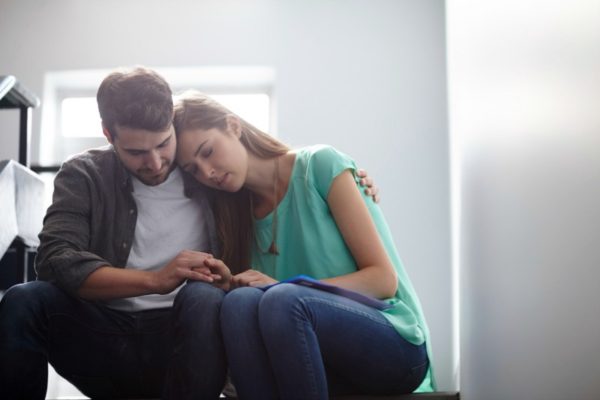
How did having PNDA affect your close relationships?
I withdrew from everyone, even my husband. I stopped seeing all of my friends in case they recognised I wasn’t coping. I couldn’t hide it forever; I had some close friends recognise the signs and ask if I needed help.
– Holly
My marriage nearly didn’t survive. Some friends didn’t get that I was shutting down and took it personally. One friend wouldn’t take ‘no’ for an answer and would try and engage me.
– Rose
I am still yet to even sleep with my husband yet because taking medication wrecks your libido. I am sure we have grown apart in a physical sense and I hope we have grown closer in a mental capacity.
– Kate
What advice would you give to other mums currently battling PNDA?
Don’t be ashamed or embarrassed to ask for help, whether it’s confiding in a trusted family member or friend or speaking to a healthcare professional.
– Kara
It’s okay to not be okay. You’re a whole new person with a baby and no rules or instructions. You have to re-learn everything as the baby learns.
– Kate
It’s really important you ask for help sooner rather than later, because it doesn’t just affect you and your own happiness. It affects your family’s happiness and your physical health too.
– Lisa
Please ask for help. You DO NOT have to do this alone.
– Holly
If you think you might have postnatal depression or anxiety and feel like you’re not being heard, please ask for help. Call PANDA or Beyond Blue.
This article was published during PNDA awareness week (November 12-18). Babyology is taking the opportunity to increase awareness and show what PNDA really looks like, beyond the statistics, stigmas and stereotypes.

